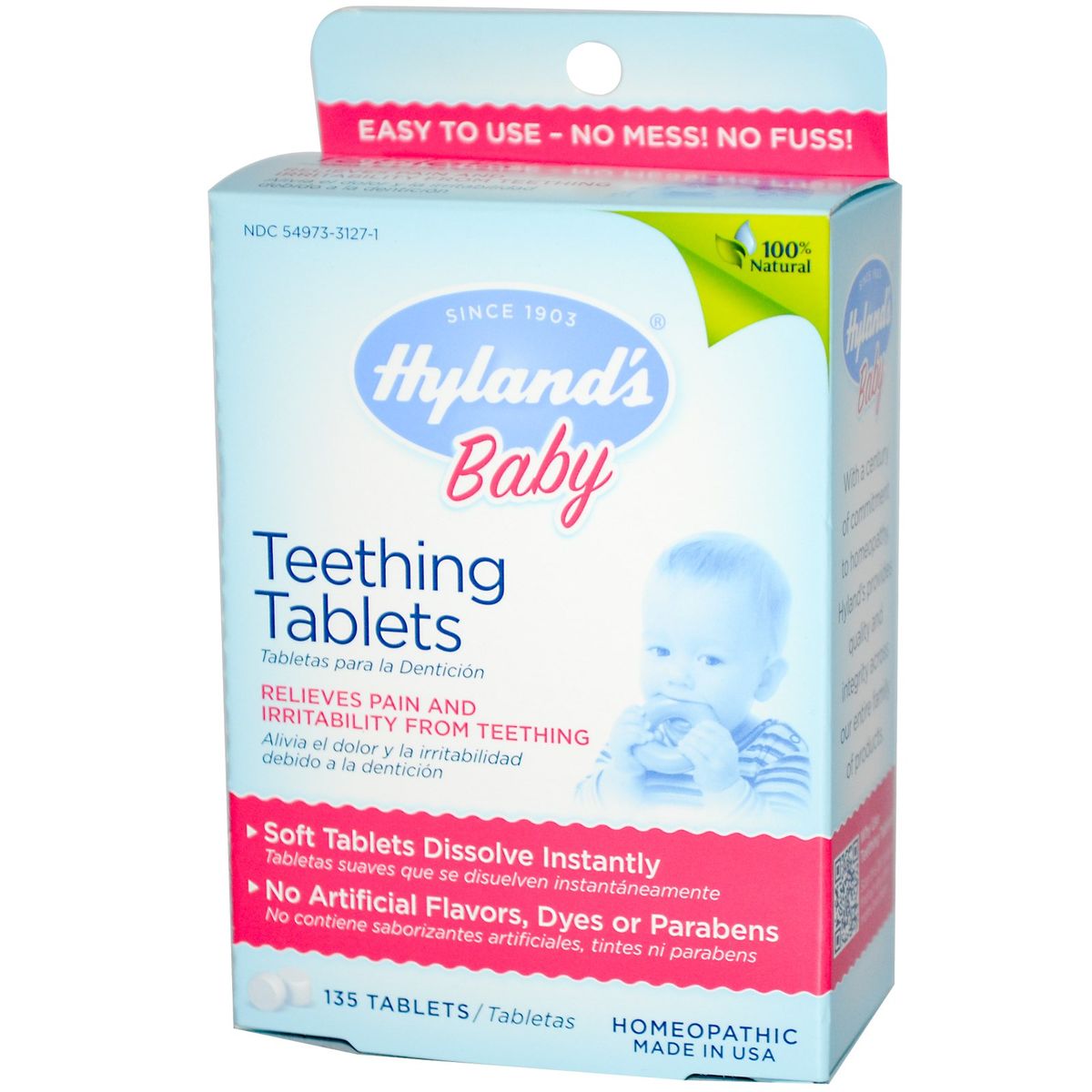On 30 September 2016, the U.S. Food and Drug Administration issued an official warning against using homeopathic teething tablets and gels:
Homeopathic teething tablets and gels are distributed by CVS, Hyland’s, and possibly others, and are sold in retail stores and online.
Consumers should seek medical care immediately if their child experiences seizures, difficulty breathing, lethargy, excessive sleepiness, muscle weakness, skin flushing, constipation, difficulty urinating, or agitation after using homeopathic teething tablets or gels.
“Teething can be managed without prescription or over-the-counter remedies,” said Janet Woodcock, M.D., director of the FDA’s Center for Drug Evaluation and Research. “We recommend parents and caregivers not give homeopathic teething tablets and gels to children and seek advice from their health care professional for safe alternatives.”
At least ten deaths and 400 "adverse effects" were associated with homeopathic teething tablets and gels — such as flulike symptoms, night terrors, and shortness of breath — between 2010 and 2016.
Hyland's said that they have reformulated their products since, but that they will stop distributing their teething products in the United States:
Our first commitment is to you, the parents who trust us every day with the wellbeing of your families. Putting you in a position of having to choose who to trust in the face of contradictory information is burdensome and undermines the FDA. We are committed to supporting you with quality homeopathic medicines as you tackle the incredibly challenging – and rewarding – role of raising your children.
Many retailers, because of the announcement, have chosen to stop selling homeopathic teething medicines in their stores while others have not. We are confident that any available Hyland’s teething products, including those you already have, are safe for use. Of course, parents who may have concerns should consult with their physicians before using any medicines, read labels carefully and follow all instructions.
However, the company said in a statement that it was not aware of data to support claims against its teething products:
Our understanding is that the Food and Drug Administration's investigation of these products is still ongoing. The fact is that we have not been made aware of any medical or statistical evidence to support a causal link between homeopathic teething tablets and adverse outcomes at this point. We continue to request any available information and statistics from the FDA.
In 2010, the FDA issued a safety alert about the tablets, saying they contained inconsistent amounts of belladonna. The company reformulated its product and returned it to the market in 2011.
